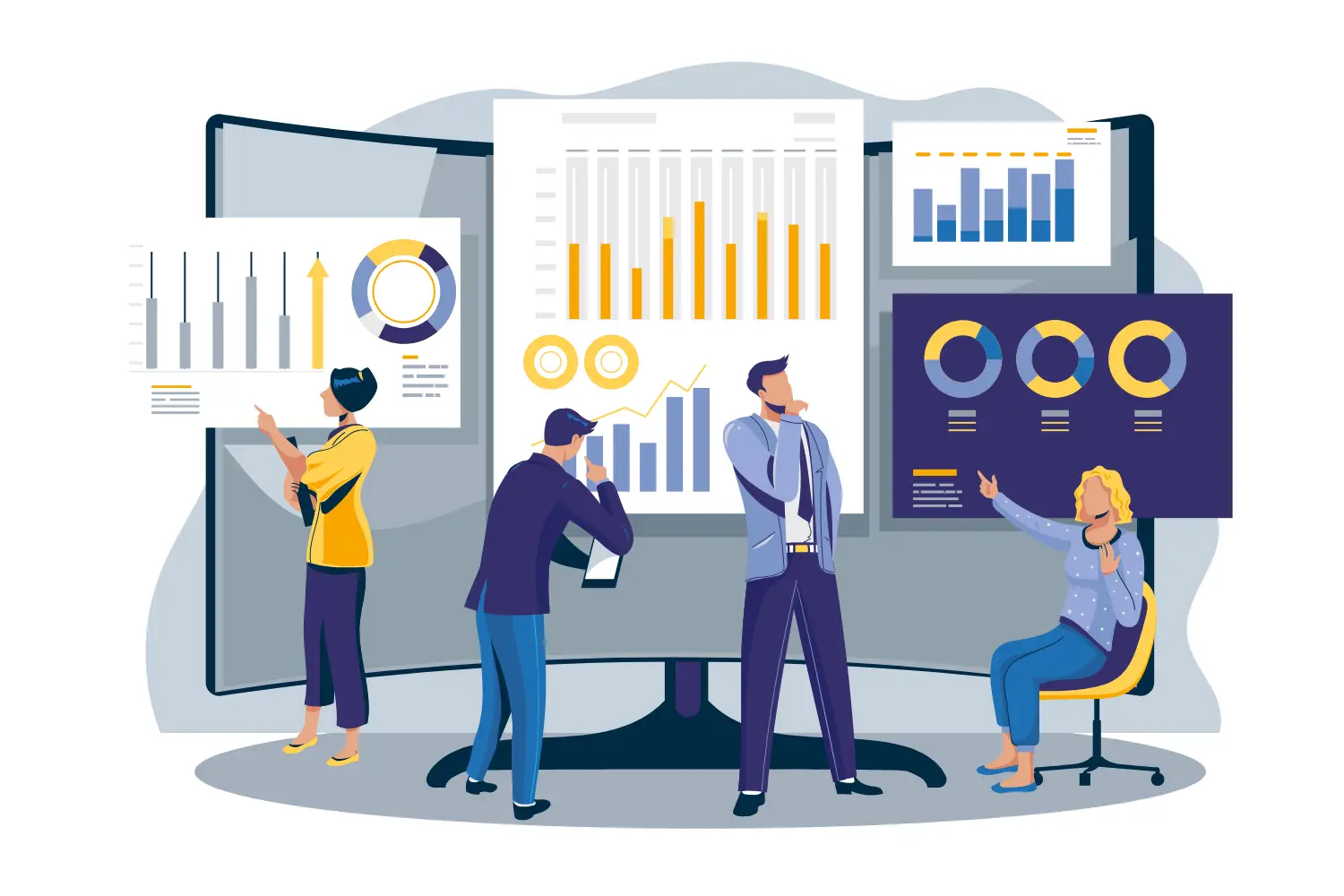-
+91 97117 68186

Leveraging data analytics can considerably enhance the effectiveness of your advertising campaigns. Right here's a simple overview of using data analytics for better marketing results:
1. Understand Your Goals:
Clearly define what you want to achieve with your marketing campaigns. This could be enhancing brand understanding, driving sales, increasing website traffic, or producing leads.
2. Collect Relevant Data:
Collect information from numerous sources, such as your website, social media platforms, e-mail campaigns, and sales records. This data can include client demographics, actions, choices, and previous interactions with your brand.
3. Analyze Customer Behavior:
Use information analytics devices to comprehend how consumers interact with your brand. Look at things like what pages they visit on your site, the length of time they remain, what products they watch or purchase, and how they interact with your social media site material.
4. Segment Your Target Market:
Split your target market into segments based on common characteristics like age, location, buying habits, or interest rate. This permits you to create even more targeted and individualized advertising and marketing messages for each team.
5. Produce Data-Driven Campaigns:
Use insights from your data analysis to craft advertising campaigns customized to your target market's choices and actions. For example, if you know a particular sector likes shopping during sales, you can target them with special discount deals.
6. Test and Enhance:
Run A/B tests on different variations of your marketing products to see which ones perform better. Use the information to measure the success of these examinations and refine your techniques as necessary.
7. Display Project Efficiency:
Track key performance indicators (KPIs) such as click-through rates, conversion rates, and ROI (return on investment). Use analytics devices to check these metrics in real time and readjust your campaigns as needed.
8. Personalize Client Interactions:
Use data to customize your communications with customers. Address them by name, recommend items based on their previous purchases, and send them customized deals and web content.
9. Predict Future Trends:
Use predictive analytics to anticipate future patterns and client behaviours. This can help you stay ahead of the competition and proactively change your advertising and marketing techniques.
10. Discover and Adapt:
Continually evaluate your data to learn what works and what does not. Utilize these insights to adapt and improve your advertising campaigns with time.
By leveraging data analytics, you can develop extra reliable marketing projects that resonate with your audience, raise engagement, and drive far better outcomes for your organization.
